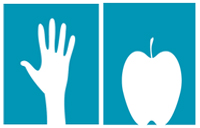What do children and youth need to know to ensure they are responsible, active and contributing citizens? And how can formal education be reoriented to meet these goals? These questions and more will be addressed at a symposium on Monday.
The symposium, What’s Worth Knowing: Educating for Responsible Citizenship Symposium, will take place May 13 at the Central YMCA of Greater Toronto, 20 Grosvenor Street, Toronto. It’s hosted by Learning for a Sustainable Future, which is housed in York’s Institute for Research & Innovation in Sustainability (IRIS), and has a strategic partnership with York University to deliver education programming.
It will bring together more than 140 senior decision makers from the education, government, business and non-profit sectors – as well as high school and postsecondary students – from across  Canada to raise awareness about challenges facing youth citizenship and identify strategies to promote positive action.
Canada to raise awareness about challenges facing youth citizenship and identify strategies to promote positive action.
“Democracy relies on the active involvement of its citizens to address problems from local to global scales. Contemporary society is facing unprecedented environmental, social and economic challenges and yet people are engaging with these issues less and less,” says David Bell, chair of LSF, professor emeritus and former dean of the Faculty of Environmental Studies at York.
“This symposium will highlight the role of education in preparing young people to be literate in  sustainability, to be knowledgeable citizens, participatory citizens; and agents for positive change.”
sustainability, to be knowledgeable citizens, participatory citizens; and agents for positive change.”
David Onley
It will build on the Ready or Not? Preparing Youth for 21st Century Responsible Citizenship round table discussions that were held in four cities across Canada – Toronto, Halifax, Edmonton and Winnipeg – between March 22 and May 1, 2012 in collaboration with Deloitte.
“The greatest declines in civic participation are occurring in younger generations, indicating that formal education is not adequately preparing young people to be empowered and engaged citizens” says LSF Executive Director Pamela Schwartzberg. “Students should be graduating equipped not  only with the knowledge of political structures, but with the skills of engagement, gained through experience, and the desire to act as change agents. No other institution is better positioned than the education system to address the fundamental challenges we face.”
only with the knowledge of political structures, but with the skills of engagement, gained through experience, and the desire to act as change agents. No other institution is better positioned than the education system to address the fundamental challenges we face.”
Donna Cansfield
Notable speakers will include: David C. Onley, lieutenant governor of Ontario; Minister Michael Coteau, Ontario minister of citizenship and immigration; Donna Cansfield, MPP Etobicoke Centre, chief government whip; Lynn Patterson, director of corporate responsibility, RBC; Ken Fredeen, general counsel, Deloitte; and Charles Hopkins, UNESCO chair, Reorienting Teacher Education to Address Sustainability.
A youth showcase of best practices in citizenship education will include students from the Headwaters Program in Guelph, Ontario, the Dr. Eric Jackman Institute of Child Study at the  Ontario Institute of Studies in Education in Toronto, Ontario and Collège Durocher Saint-Lambert in Saint-Lambert, Quebec.
Ontario Institute of Studies in Education in Toronto, Ontario and Collège Durocher Saint-Lambert in Saint-Lambert, Quebec.
Michael Coteau
LSF is a Canadian charity founded in 1991 with the mission to promote, through education, the knowledge, skills, values, perspectives and practices essential to a sustainable future. LSF’s innovative programs and strategic partnerships are reshaping education policies towards fostering responsible citizens for the 21st century.
A full list of the day’s events can be found here.
For more information, visit the Learning for a Sustainable Future website.


